As the Durban International Film Festival gets underway in the balmy coastal city in KwaZulu-Natal Shoks Mnisi Mzolo explores the untapped opportunities that may result from close collaboration between film and tourism
Like their Cape Town and Nairobi cousins, Durban’s minibus taxis are akin to booming mobile artworks. They blare the music of the likes of Lady Amar, Bob Marley and Notorious BIG.
Hadedas’ random shouts and the hissing waves enter the soundscape.
A Gqom track can be heard, but only occasionally. Times have changed. Amapiano have come in. The beat dominates clubs from the East Coast to Joburg and beyond, and commands a sizable fan base from Kampala to Lagos.
Durban-bound tourist traffic reportedly benefits from film projects made here. Cue Umkhokha was once SA’s most-watched DStv show. Of the 1.3 million people who, we read, visited the city in December – generating R6.3-billion for the locals (and sustaining 11,500 jobs) – some had been attracted by film. Bean counters are at work.
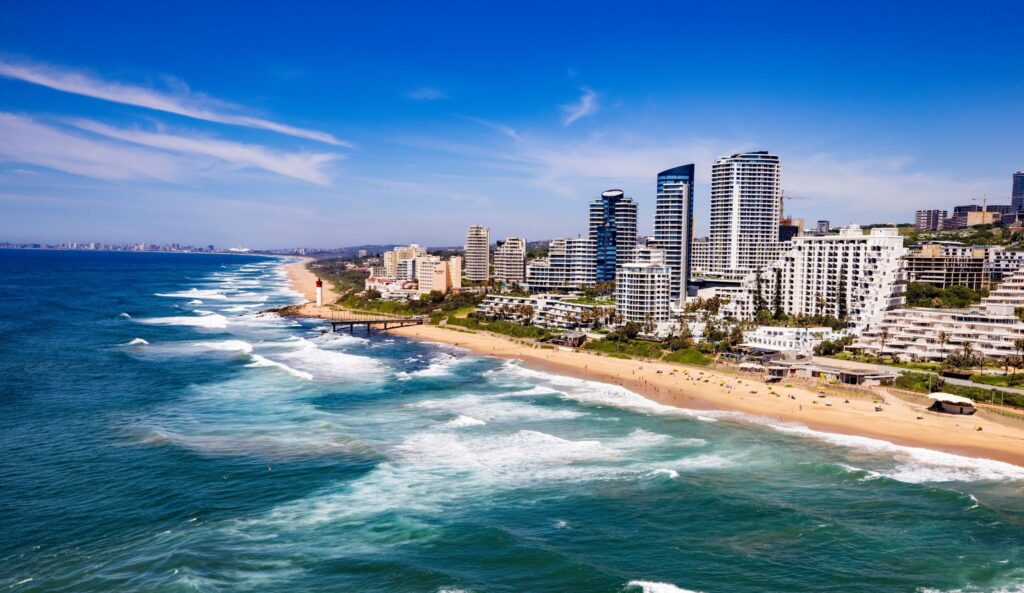
So, it’s not a surprise that KwaZulu-Natal provincial chiefs would dole out millions in taxpayer funds for the 2025 edition of the Durban International Film Festival (DIFF). So, beyond branding, it is worth asking: how is the province shoring up the sector or capitalising on it to stimulate the economy or celebrate the land and its people?
Curiously, there has been no film adaptation of Sifiso Mzobe’s book, Young Blood, set in Durban. Film adaptations are overdue for K Sello Duiker’s intense Thirteen Cents, a book that explores the un-manicured part of Cape Town and set in Botswana’s Serowe, Maru, a classic by Bessie Head, a one-time Capetonian. Back to life, don’t forget Botlhale Tema’s insightful but underrated People of Welgeval about land grabs and slavery in the bushveld.
Durban-based film industry expert Sakhile Gumede says, “tourism and film (sectors) are interlinked. Look at location. Filmmaking is huge, but it’s often underrated. When some leaders think tourism, they think of aspects such as game parks but hardly consider film.”
It is on Durban’s beach that I met Blantyre-based filmmaker Shemu Joyah, then in town for the Durban FilmMart, once described by UNESCO as “the continent’s best film market”.
That market precedes DIFF, a celebration of Africa’s finest. The eleven-day and multi-venue fest, taking place from July 17, also facilitates many projects, not least Isiphethu, an upskilling avenue.
There’s room for improvement to deliver films that – to quote Musa Zondi, KwaZulu-Natal’s tourism and economic development MEC – “provoke thought and motivate action”.
To be fair, the skills pipeline is solid. Youths are stepping up. For one, the festival’s speaker line-up includes producers Nokuthula Dlamini and Keyanna Kyd.
They are both in their 20s and illustrious. As speakers and jurors, Rethabile Ramaphakela, Tanya Rossouw and Tshilidzi Davhana bring in impressive CVs.
So do Adze Ugah, Gabe Gabriel, Gbenga Adeoti, Lauren Fletcher and others who also add a global flavour. Last year’s line-up included Ana Camila Esteves, director of the Mostra de Cinemas Africanos (Brazil’s own African film fest).
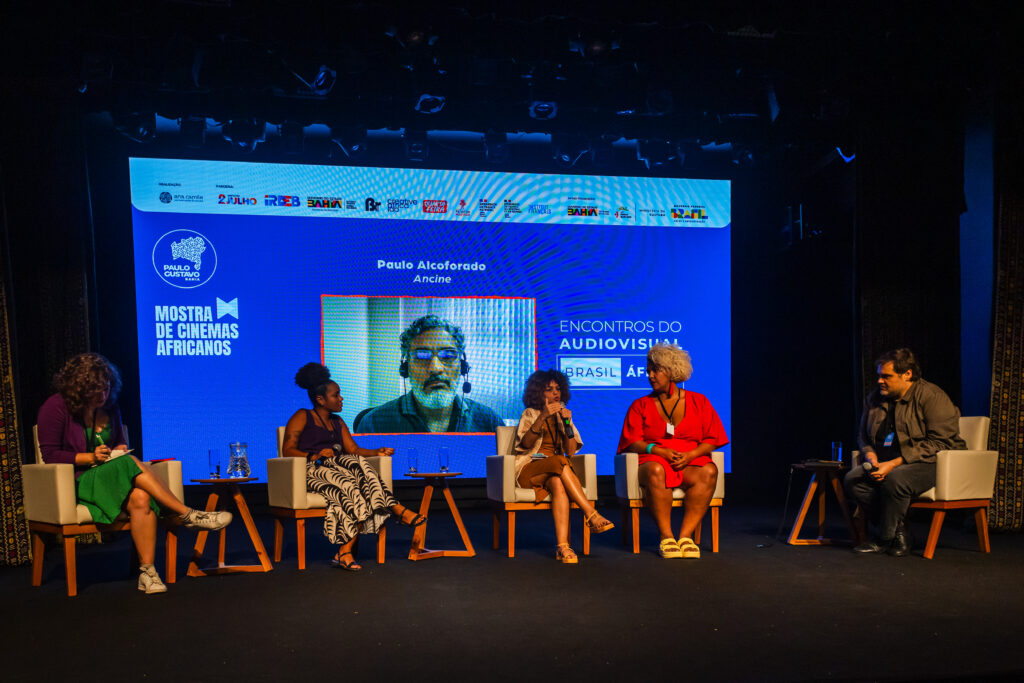
The absence of Brazilian voices at the 2025 edition is lamentable. It is about time African filmmakers looked to Brazil, home to the largest community in the diaspora, for co-productions, unless we want to keep importing films or copying ideas from the USA.
Surely, African filmmakers recognise the beauty of diversity and can do with some peer or community development.
Of this year’s DIFF entries, there are 12 documentaries, of which three are from the US and another three from Africa. This skewed picture shows the extent to which doccie makers from the continent lag.
The Home, directed by Jessie Zinn, a Capetonian, takes in race-based economic disparities. This doccie shows that the legacy of a system that died in 1994, the same year that Zinn was born, stalks South Africa to date.
The Home exposes institutionalised gaps dating to apartheid days, something that reminds us that such disparities do not autocorrect. Thus, author Jacob Dlamini once observed in Business Day, Germany and her citizens, regardless of their political ideologies, forked out billions to help a European community that Nazism had destabilised. Some liberals still refuse to take note.
Zizile Ngcobo, a budding director and alumnus of Isiphethu, is refining her debut, inspired by sexual abuse at the hands of pastors and prophets. “This is very serious, but nobody wants to talk about it.”
While on young talent, consider that Tsotsi, based on an eponymous novel by Athol Fugard, had rookies as leads. It was Tsotsi that, in 2005, introduced to the globe Presley Chweneyagae, who departed at his prime in May. What an actor!
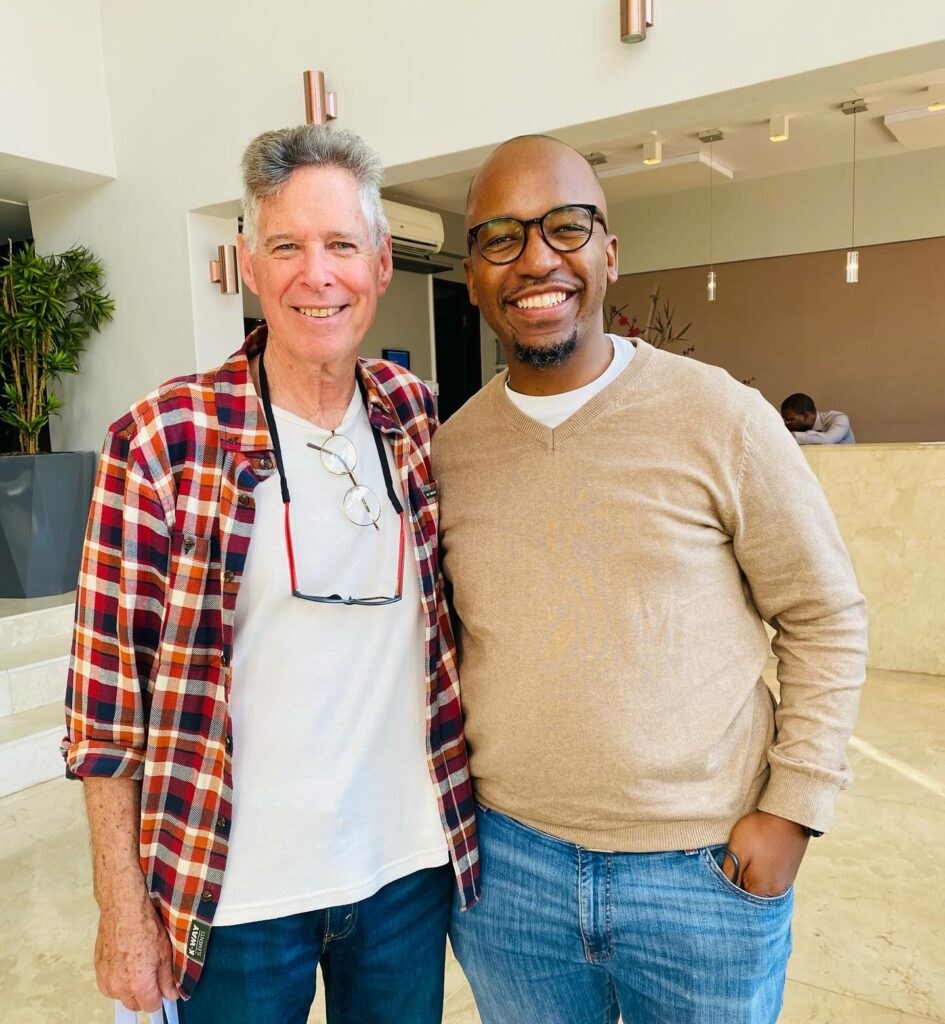
Other greats like Mothusi Magano, Terry Pheto and Zola, now with some salt-and-pepper, balding heads and all, were still fresh-faced and inexperienced. There are lessons to be learned from here.
Any serious newbie can crack it given supportive guidance and tutelage, asserts Isiphethu’s Sakhile Gumede.
However, the makers of The Boy Who Harnessed the Wind, based on a book by William Kamkwamba, a Malawian engineer, gave key roles to foreign A-listers. Deriding the creators’ excuses for broken Chichewa in the film, Ngcobo says such gimmicks insult African heritage. And, of course, Hollywood is guilty of butchering isiXhosa in cases of Nelson Mandela characters.
“Why is it fine for filmmakers to do that?” While Ngcobo supports cross-pollination, she and Shemu Joyah ask big-name directors to give local and small-time actors a break. Cue Chweneyagae, Leleti Khumalo and others.
Mainstreaming homebrewed talent is a no-brainer, according to Isiphethu’s Gumede. He lists nuances and authenticity, then tackles economics.
“There are countries that are sitting on wealth. When we say wealth, we don’t just mean minerals or mining. Filmmaking is wealth,” he says, lamenting half-hearted politicians.
“If you have an arts & culture or a tourism minister who cannot market this industry, who cannot market the geographic location or wildlife, ask them who they are waiting for? Why are they there if they can’t do the job?” Gumede’s questions are a reminder that some Southern African nations have had the same ministers for aeons but little success. There’s also a matter of little or no impact due to high turnover at the top: Botswana, Lesotho, Madagascar, Malawi and Zimbabwe.
To get back to DIFF, why so few doccies from Africa when the continent is replete with stories: Afrobeats, Amapiano, Diturupa, Gqom and Riemvasmaak; Berea, Cuito-Cunavale, Ingquza Hill and SS Mendi; foetal alcohol syndrome; drug trafficking and food poisoning; price-fixing cartels; the plight of farmworkers.
There is no dearth of old and new cross-border stories: asbestosis, human smuggling, land grabs and Operation Green.
In September 2024, SA repatriated 49 late activists and guerrillas from Zambia and Zimbabwe to be re-buried in the country they fought to liberate. Films are yet to be made to memorialise their roles. August 1st, just days post-DIFF, marks the 40th anniversary of the assassination of human rights lawyer Victoria Mxenge, barely 20km from some of the sites hosting Isiphethu workshops and other fest-related events in July. Also overdue are books and films to memorialise her story and the stories of the many others who perished in our quest for freedom.
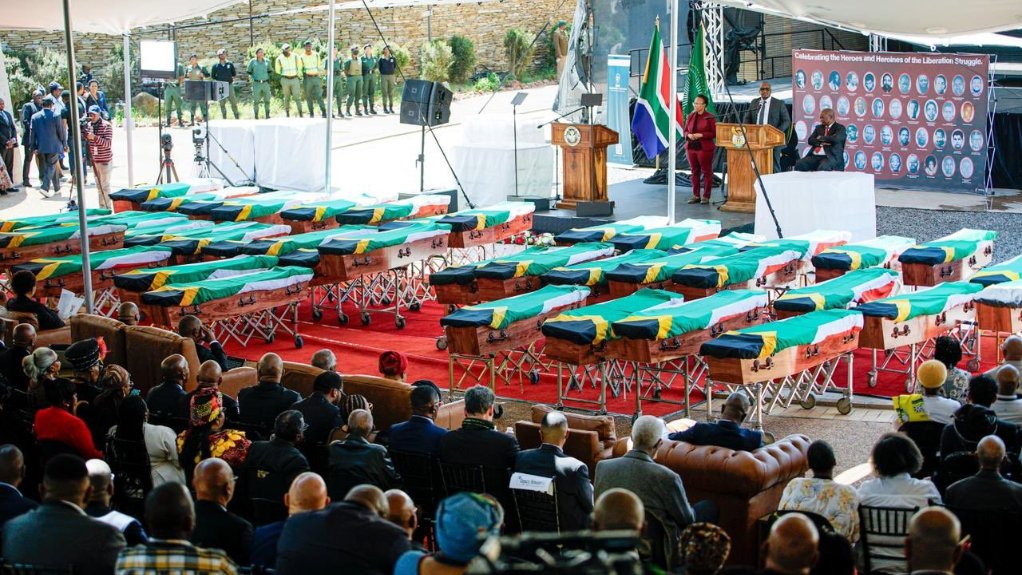
In defence of perennial underfunding, politicians plead poverty, but Ajabu Ajabu Collective’s Jesse Gerard Mpango differs. “The resources argument has to be taken with a grain of salt: priorities are visual. Can we see the ‘priority’ things that the funds have been used on? Show us what those funds have achieved. There’s a big gap between government spending priorities and reality,” he says on the phone line from Dar es Salaam. He moans that negligible support is offered to the arts by some governments.
“Growing arts & culture has ripple effects. It grows many other sectors, but for us to see that, we’ll first have to get out of the silos. Let’s work on the same page.”
On ripple effects, Joyah cites Out of Africa. Based on the works of Karen Blixen and released decades ago, that story shone a spotlight on Africa.
“[It] showcased Africa’s beauty. For years, it attracted many filmmakers who came to Kenya in numbers.”
He punctuates his take with a question: “Do you know how much that film generated for Kenya’s tourism industry?”
Filmmakers are to blame for their underdevelopment: fixation on “big names”.
A-listers can yield quick profits, but that fixation sustains class-based entry barriers, argues Mpango, who, along with his Ajabu Ajabu comrades in Dar directed Tenzi za Sinema.
The film, previously crowned Best African Short Film, was lauded for “its captivating and entertaining depiction” of cinema history.
This year’s almost 30 hopefuls after the overall shorts gong include Danse Macabre by Toni Onabulu (Benin), Mohamed Bourouissa’s Geneology of Violence (France), as well as Swim Hard by Mark Penwill and Minenhle Luthuli’s Being You (both from SA).
The festival’s 2025 welcome note lists 92 entries from 50 nations.
The only Southern African countries on that list are SA and Lesotho. Feature films, tallying 29, are impeccable: Black Dog (China), Freedom Way (Nigeria), Les Fourmis (Morocco), Nawi (Germany and Kenya) and Samia (Belgium, Germany, Italy and Sweden). Filmmakers from the host nation submitted Black Burns Fast and Don’t Let Us Go to Dogs Tonight. Add to that list God’s Work, Lucky Fish and Street Trash.
The 2025 doccie list features The Home, Stefan Enslin’s Pigcasso and Sudan, Remember Us by Hind Maddeb. Though based in Paris, the film director was in Khartoum when Omar al-Bashir was ousted in 2019.
Being on the ground, coupled with the fact that Maddeb knows this part of Africa, did a film that is real, nothing similar to racist and regional clichés.
Delivered poetically and rhythmically, with East Africa’s toyi-toyi, Sudan tackles the point while mainstreaming feminism, among other aspects, which dismantle some stereotypes associated with the region. On the downside, failure to co-produce with colleagues in Sudan is notable, but thankfully, Maddeb’s talent-rich team did well.
Dar-based Mpango takes a closer look at capacity. “The question of talent is an economic one. There is an over-representation of people who were privileged to go to film schools, and they have access to people who have access to money,” he says. “Let the long-term objective be to ensure that filmmakers have a say on the standards and on which actor is chosen.” He blames the imposition of some actors on overbearing commercial interests and class networks, arguing that actors who get more airtime are set to do better than those who barely get opportunities.
On making the circle bigger, Joyah walks the talk. Armed with faith, he looked beyond “ready-made” talent when he wrote Seasons of a Life. Two decades later, he recalls that rehearsals for Seasons took six months to build and nurture capacity in Malawi.
“Bringing talent from abroad is fine, but you have to strike a balance. If there’s no talent on the ground, offer training because people need a chance. Everybody needs a chance. Besides, local talent adds value – you cannot ignore that.”
The grandee is now working on his next projects – a thriller and on the story of Rev John Chilembwe, John L Dube’s contemporary and a liberation struggle hero who was assassinated by British police in January 1915 for fighting colonialism in Malawi.
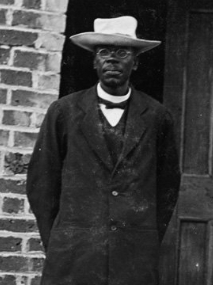
Following the fall of the dictatorship, Malawi began to celebrate Chilembwe’s life in the 1990s. In 2023, more than a century after Chilembwe’s assassination, Britain unveiled a statue in Trafalgar Square to honour the freedom fighter.
“In Malawi, we live in hope and hard work. We don’t have much else,” says Joyah, who, almost 20 years ago, began to research Chilembwe’s legacy, segueing to his headache: funding.
“I have an emotional attachment to the Chilembwe story,” he says. “The story is set in the 1890s but progresses up to the uprising of 1915 and when the British put dynamite to blast John Chilembwe’s church to pieces,” reflects the pensive veteran. “He’d built a beautiful church.”
Today, Joyah credits his grandmother for cultivating in him a love for storytelling.
Seasons and The Last Fishing Boat have bagged many trophies in Africa and abroad. The Road to Sunrise, his third film, won plentiful awards and went on to earn Joyah the best director accolade at a festival in Zambia.
Alas, he feels that “we’re far from where we’d like to be”, reviewing Malawi’s long to-do list: upskilling of on-screen talent, storytelling techniques, cinematography and equipment specialist expertise. Based on the quality of some projects, that also applies to Kenya, Nigeria, SA and so on.
Joyah and his regional colleagues advocate for cross-border projects for African nations to feed off each other’s strengths: talent, location, infrastructure and expertise.
“This is an exciting time in terms of access to creative works. Top filmmakers in Africa are creating world-class films. There used to be fewer of those, but their numbers are growing now,” Tanzania’s Mpango says, evaluating Africa’s path since 2020.
Gumede agrees, then flags aspects like poor packaging and cinematography, invariably overshadowing good storylines. In other words: mind the finishing touches.
It’s about time things changed, but worries that industry players have left measures like city twinning largely untapped, the Durbanite admits. “We are not seeing many co-productions, but we, first as individuals, must change this. When we network (at gatherings) let us be mindful of fostering relations, be it through sister cities or political ties. It is up to us.”
news@mukurukuru.co.za
